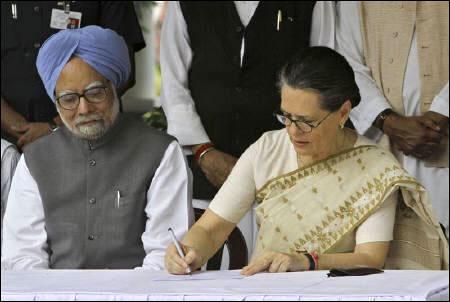
While the signals of intent have already gone from North Block, the hiccups this time are coming from officials in the Finance Ministry, who had got used to a certain mindset.
Sonia Gandhi appears to have given a "carte blanche" to Prime Minister Manmohan Singh to move ahead on reforms and take all the measures he thinks are necessary to put the economy back on track, as the UPA II's priority number one.
There are several straws in the wind to indicate that Dr Manmohan Singh - who did not lose even 24 hours after taking over as Finance Minister to get cracking on the economic decisions that needed to be addressed - is moving ahead this time with the full backing of the Congress President and UPA chairperson, who is supposed to have held him back all these months.
The first indicator of the two moving in step is the inclusion of Pulok Chatterji in the core team which is going to assist the Prime Minister, the other two being C Rangarajan, who heads the PM's Economic Advisory Council, and Planning Commission's Deputy Chairman Montek Singh Ahluwalia - suddenly the industry honchos, like Mukesh Ambani, are beating a path to Yojana Bhavan to confabulate with him -- and the PM has for years enjoyed a rare level of comfort level with both. The Cabinet Secretary is also there, given the multi-ministry nature of some of the decisions the PM now wants to take.
Click on NEXT for more...
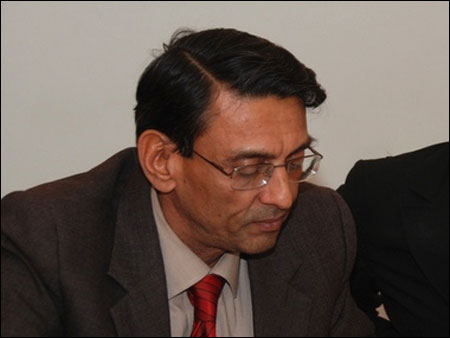
More significant however is the involvement of Chatterji, who has been perceived as Sonia Gandhi's person in the PMO, and was expected to be the bridge between the Congress and the PMO.
Such was his rapport with Sonia Gandhi, that he would brief her on a daily basis when he was an official in the PMO in UPA I.
When he had returned from the World Bank, cutting short his stint as executive director there, and was appointed as the Prime Minister's Principal Secretary in place of the once powerful T K Nair, there was speculation that he was readying to assist Rahul Gandhi as PM, were such an eventuality to arise.
The second straw is the ouster of four members of the National Advisory Council headed by Sonia Gandhi which has acted as a think tank for the government and pushed the Government to widen its social agenda. Jean Dreze and Harsh Mander had been stridently critical of the Government, have not been renominated - Dreze had anyway resigned and made his desire to quit after the Food Security Bill, currently with the Standing Committee, was formulated -- and MS Swaminathan and Madhav Gadgil may not have been reinducted in NAC for other reasons.
Click on NEXT for more...
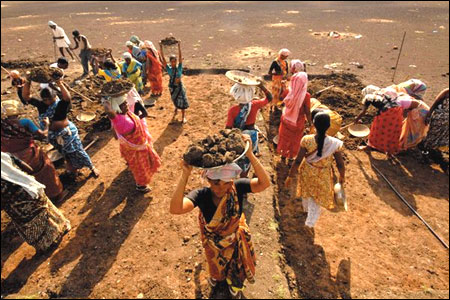
Viewed in its totality, the NAC developments are being seen as a "signal" that the Government may now want to move away from what has seen by some as "impractical", and "loony", "Left politics" advocated by NAC members, and India Inc is happy with this turn of events.
This may not mean that Sonia Gandhi has given up on her "entitlement politics" of subsidies and welfarism completely. But she may have agreed to put it on the backburner till the financial situation improves.
There are indications that her pet project - the Food Security Bill -- which was expected to do for the Congress what MNREGA and the loan waiver did for the party in UPA I, is expected to be presented to Parliament only next year, months before the general elections and it may only just get passed - and not implemented, for there aren't the funds or the mechanism to implement it - to be enforced by the next government.
There were three factors which had prevented the Prime Minister from going ahead with reforms in the last years, to which he has personally been committed all along.
One was political clearance by the party. The PMO is today hopeful that many measures - several of them do not need legislative clearance but can take effect with an executive fiat, like FDI in multibrand retail - may actually see forward movement on FDI in civil aviation, reforms in the pension, banking and insurance sectors, and on the Goods and Service Tax Bill.
What will however be more difficult to push is the deregulation of diesel prices, for that could entail an all round spiralling of prices, which would neither go down well with the allies nor with the Congress party.
Click on NEXT for more...
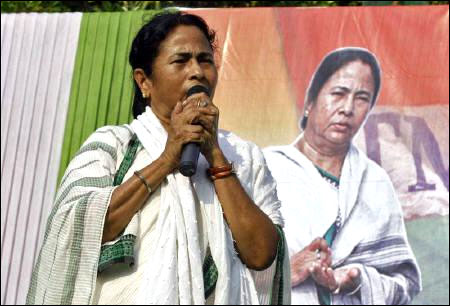
The second factor which had reined in the PM was the opposition of the Congress' allies, which are too well known to be repeated.
It was Mamata Bannerji's resistance to increase petro prices or FDI in multibrand retail which had forced the Government to undo decisions it had taken, making it lose face, credibility and authority.
Now, at least for the time being, till Mulayam Singh Yadav decides otherwise, the Congress can have the comfort of having the support of the Samajwadi Party for many of these measures.
Mamata Bannerji's current "not in-nor out"position also suits the PM, as far as reforms go, even as it makes the UPA over-dependent on Mulayam Singh.
Click on NEXT for more...
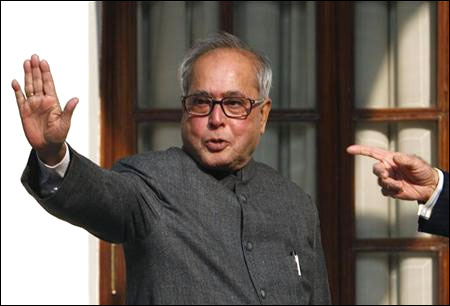
The third factor was Pranab Mukherji, who headed the ministry of Finance, and ran it like a fiefdom, and now he is headed for Rashtrapati Bhavan. It is said that "Dada" did not allow the PM to get a peep into his ministry even edgeways.
The PM, it seems, was taken aback by the retro tax against Vodafone, which Pranab Mukherji refused to undo, and with GAAR, with both measures adversely affecting investor confidence, more than any other single action.
Within hours of taking charge of the Finance Ministry, the Prime Minister gave indications that both the retro tax and GAAR would be reviewed. Some do not put it past the politically savvy Mukherji - he appears to have set his eyes on the Presidency Bhavan as far back as two years ago, when he had first announced that he would not contest elections again -- to have gone in for some of these decisions, to generate the all round push that would catapult him into Rashtrapati Bhavan.
Suddenly, Pranab Mukherji is being blamed for all the mess in the Finance Ministry, and the prospects of the Prime Minister, who at one stage could do nothing right and whose image as an economist had taken a severe beating, are looking up!
While the signals of intent have already gone from North Block - and they sent the Sensex soaring by over 400 points in one day -- the actions are expected to follow in "4-6 weeks".
Ironically, the hiccups this time are coming, not from 10, Janpath, nor from the allies, nor from the Finance Minister, but from "officials in the Finance Ministry, who had got used to a certain mindset".